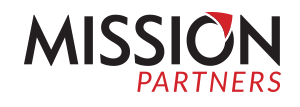Our Commitment to Racial Equity: A Progress Report
In July 2020, Mission Partners published a Race Equity Action Plan, a collection of our commitments and actions to advance racial equity within our business, our client work, and our world. Within that document, we stated that we would revisit and refine these commitments on a quarterly basis. The following is the first in a series of regular updates from the Mission Partners leadership team on our progress to advance these commitments.
Mission Partners’ commitment to the J.E.D.I. principles of racial justice, equity, diversity, and inclusion—an understanding and acknowledgement of historical and ongoing racism and a commitment to actions challenging racism—is a core tenet of our work, embedded into our structure, analysis, and policy development and processes.
In 2019, our team first came together around the shared desire to develop a Race Equity Action Plan. We wanted to take our racial justice commitments to a deeper level by publicly sharing—first with our employees and partners—and then with our broader community, to hold ourselves accountable to action. In that plan, we identified three areas of focus where we could have the greatest ability to advance our anti-racist commitment and to support the building of more equitable systems—our business, our client work, and our community. Our commitments extend to all communities of color who have felt the harmful effects of hate and oppression in our society. Read more about our current and ongoing efforts in our latest blog.
In Our Business
Mission Partners is a Certified B CorporationTM—at the core of that commitment, we consider people, planet, and profit in every decision we make. We have a heightened sense of responsibility about our actions, to ensure that we build a business that works for our team, our clients, and our world.
We are committed to taking steps to build a racial equity lens into our organization’s strategic planning policy, priority setting process, and issue area strategy and implementation work. In February 2020, we launched an Equity Accountability working group. This group is open to the entire Mission Partners team and meets every three weeks to ensure that we have a regular opportunity to connect about our racial equity commitments. This working group supported in the development of the Race Equity Action Plan, which tracks and measures equity goals for every client project we work on, and serves as an accountability mechanism for the Mission Partners leadership team to advance its racial equity commitments. The Equity Accountability working group is now working on a purpose statement to further cement the group and its role within the firm.
We know that in our role as an employer, we hold tremendous power and we’ve committed to removing bias from the hiring process while building equitable pathways to wealth-building opportunities and senior leadership roles for every member of the Mission Partners team. We also prioritize paying all staff and contractors a fair living wage to support the long-term prosperity of our people and our economy. Each year we reevaluate salaries to ensure every member of the Mission Partners team is paid a family-supporting wage.
The unrelenting series of events that have come to define 2020—a collective national reckoning with racial justice, a contentious presidential election, and global pandemic—had deep impact on our staff, requiring our leadership team to provide additional supports. We rolled out new employee benefits—from paycheck advances to a stipend to support home office expenses, to an allotment of additional time off, no questions asked, to support staff through the traumatic year.
In 2020, we also underwent a collaborative process to revamp our policies and procedures to ensure equitable practices are prioritized across our business. An open comment period where all employees could share kudos, ask questions, and voice concerns allowed for buy in across the team.
Finally, we hold a commitment to eliminate adverse outcomes and barriers caused by the systems of oppression within our work and communities and in 2020 began the development of an Editorial Guide that helps eliminate objectivity and bias from the Mission Partners writing and review process.
In this year, we will continue to advance these commitments and we plan to formalize criteria or guidelines for establishing a new partnership that will cement our ability to work with organizations that share similar values and commitments. This will build upon our existing Vendor and Supplier screen that ensures our major vendors and suppliers are working in concert with us to build a better world.
Client Work
As strategic communications consultants working at the intersection of policy, philanthropy, and public relations, we’ve been at the decision–making table with dozens of nonprofits and foundations as they have taken on issues of justice, equity, diversity, and inclusion in their work. As trusted advisors, we seek to leverage our influence for positive impact.
Within our client work, we have committed to challenge policies and systems— that perpetuate oppression, discrimination, and inequities. We prioritize and support the efforts of organizations that work with communities most affected by inequity and strengthen our role as an effective partner to those organizations. We also identify equity goals for every client project and we monitor our progress on a regular basis.
In 2020, we were grateful for the opportunity to advance this work with numerous ways, including by:
- Helping Family Independence Initiative develop a COVID-19 Impact Report that highlighted the racial disparity in infection rates, job loss, and access to relief funds, and which served as the basis of a powerful convening among philanthropists and families.
- Advancing awareness of a new partnership between Low Income Investment Fund, National Affordable Housing Trust, and Stewards of Affordable Housing for the Future that aims to direct $1B toward nonprofit developers to preserve and build affordable housing—an existing issue that has been exacerbated by the COVID-19 pandemic and recession. Our efforts resulted in 21M+ impressions of the initiative.
- Providing strategic support to Jubilee Housing as it aimed to work with local DC government officials to expand affordable housing and resident services to formerly incarcerated individuals in Washington DC’s Ward One.
- Developing messaging, convening a coalition of members, and advocating for policy change in support of Rebuild Local News to bring awareness and attention to supporting diverse media and making the connection between a dearth of local news and growing inequities.
In 2021, we commit to directing at least $50k of pro-bono work to organizations led by people of color. We have also begun the process of understanding how oppression, discrimination, and inequities are inherent in our client work and deliverables and in 2021 are reworking core processes to identify and eliminate bias. We are also exploring ways to better understand the makeup of the account and leadership teams of the clients with whom we work, which will allow us to set benchmarks and goals for progress.
For Our World
We commit to economic, racial, environmental, and social justice and building a business that is good for our world. Our primary lever for advancing this commitment is to create an ongoing dialogue to explore and act on key issues including cultural, structural, and institutional racism, as well as white privilege, influence, and power, especially within the content of our issue areas. In 2020, we conducted an anonymous audit of white supremacy norms in our workplace and had an open and vulnerable conversation on the feedback. We continue to revisit those findings and identify ways to work against those norms. Our team collectively participated in several learning opportunities to advance our knowledge of racism. Team members held a lunch and learn on race and the media and our entire team participated in a multi-day race equity training in mid-May. Learnings will continue, as we work to ensure 100% of the team receives skills-based training, cross-job training, and life skills training in 2021.
Throughout all of last year, we engaged in valuable and vulnerable conversations with members of our team and those within our network through our virtual community conversations, blog posts, and podcast—many of which focused on cultural, structural, and institutional racism. In August, we released an open source Equity Practice Guide—a collection of resources for building a more equitable workplace with an emphasis on the communications field, such as equity in language, marketing strategies, and design. Through Adventures in Kindness, published by Mission Partners Press, and authored by Mission Partners’ CEO Carrie Fox and her daughter Sophia, we developed a summer reading list and discussion guide featuring Black authors.
We continue to prioritize Black and woman-owned vendors. In 2020, 66% of our significant suppliers are local to our company’s headquarters in Montgomery County, Maryland and/or were owned by women, individuals who identify as LGBTQ+, and people of color. In 2021, we commit to diversifying budgets to include investments in local and Black-led organizations for marketing, vendors, philanthropy, and wellness. As an example, in 2020, we purchased a subscription to a Black-owned illustration service to facilitate more diversity in public-facing client deliverables.
In 2021 we will build out strategic partnerships with Black-led organizations, to foster cross-agency collaboration that will bring both added growth and learning opportunities for our employees, as well as additional value for our clients. We have recently launched a CEO conversation series which—alongside the Mission Forward podcast—creates venues for us to delve deeper into conversations about equity with members of our network and community.
Our team acknowledges that this journey will last for the lifespan of our organization—there is so much more that we can do and look forward to doing in the years to come. We will continue to report out on our progress towards our goals and invite our team, our community, and our clients to hold us accountable to these commitments.
Carrie Fox, Bridget Pooley, Arron Neal, Jessica Hassanzadeh





 Check out our new
Check out our new